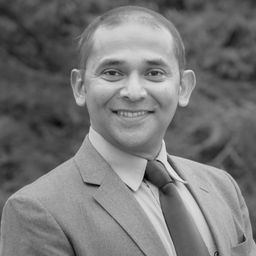Problem Posing Tourism and the Precariat
Mon statut pour la session
I am keen on learning how tourism is entangled in World(s) making and unmaking processes, particularly its role in unveiling and perhaps countervailing the power relations within the bastions of the capitalist superstructure, where Marx and Engels’ (1919) prognosis, “exploitation of the many by the few” (p. 29) has become a dreadful neoliberal symbiosis. If given the opportunity, I am interested in dialogue with critical tourism scholars on how tourism as praxis could emote and promote the phronesis (practical wisdom) of the tourists through their engagement in the social, cultural and economic phenomenon beyond their usual habitat (UNWTO, 2023). My emphasis on such praxis is rooted in my attentiveness to slow and thoughtful engagement with ordinary sites and situations (as geographers would characterize them) (Lew, 2018) in proximity. Through these engagements, I believe, one can build phronesis in (re)constituting oneself as a ‘person’ in historical communities rather than a cog in the economic or social machines (Dunne, 2001; Park, 1968). Case in point, I am implying that even a walk in the park can be more than a ‘walk-in-the-park’ to escape from the mundane World or the one filled with mendacity. Instead, such a walk can help one by “turning back upon it to transform it” (Park, 1968, p. 68), provided one is willing to dig up the archeology of pain (Freire, 1994) and empowering stories of re-claim buried beneath the historical artifacts and forgotten (or ignored) stories of making and unmaking of the cultural landscapes. If critically engaged, the natural landscape can work as more than an attention-restorative healer (Kaplan, 1995), a transformative problem-posing educator, showcasing the mutually beneficial competitive cooperation between the species (Park, 1968). Without further ado, I am probing into a working hypothesis, Problem-posing Tourism (PPT), a neologism that resembles Freire’s (1972) conceptualization of problem-posing education. The goal of PPT in my research centring resettled refugees in Canada is to ‘forewarn’ them about their precarity through fostering a clear sense of place instead of the scripted or the curated ones. PPT's purpose is to forearm (Marx, 1967) the resettled refugees to manage their precarity. Precarity is, as Butler (2012) explains, “…our sociality, the fragile and necessary dimension of our interdependency” (p. 148). Though hard to theorize through identity politics, as Standing (2011) points out, the precariat is a “class-in-the-making” (p.11) and the immigrants, including the resettled refugees, are a large part of it. Standing (2011) maintains, “Capital welcomes migration because it brings low-cost malleable labour” (p. 176). Ironically, resettled refugees’ entanglement with precarity in Canada begins with their arrival under the Refugees and Humanitarian Resettlement Program (Immigration, Refugees and Citizenship Canada [IRCC], 2023). Though legally titled ‘humanitarian,’ resettlement is one of the three immigration schemes through which Canada fills critical labour market gaps to support its strong economy (IRCC, 2023). Yet, the term ‘humanitarian’ produces false consciousness and naïve hope among the resettled refugees. It generates empathy in some and antipathy in others within the population (Domise, 2019; Ipsos, 2019), making the resettlement experience further precarious and painful. The sooner the existential claim of precarity is articulated in its specificity, Butler (2012) suggests, “…it ceases to be existential” (p. 148). I anticipate, through PPT, that the resettled refugees would be able to contemplate, communicate, and coerce their precarity in light of problem-posing stories of oppression and emancipation of communities and cultures that preceded them in helping to form multicultural Canada as we know it today. Finally, in thinking about PPT, I echo Standing (2011), “…what seems impossible today has a habit of becoming not just possible but eminently practicable” (p. 269).
